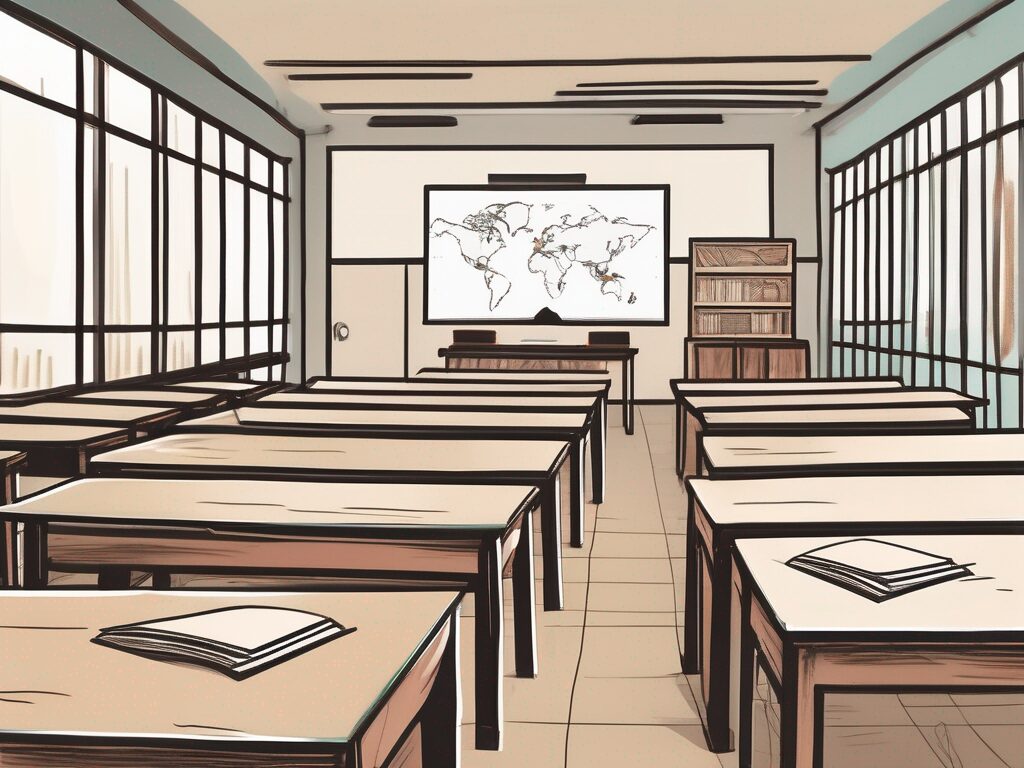Education is a cornerstone of any society, shaping the minds of future generations and setting the stage for progress and development. However, the journey to providing quality education is fraught with challenges, and these can vary greatly from one country to another. In this context, we will delve into the teaching challenges in two diverse countries, Indonesia and Qatar, examining their unique situations and exploring potential solutions.
Understanding the Educational Landscape in Indonesia
Indonesia, the world’s fourth most populous country, faces a unique set of challenges in its education sector. With over 17,000 islands and a population of more than 270 million people, the geographical diversity alone presents a significant hurdle.
Furthermore, the economic disparity between urban and rural areas further compounds these challenges, creating a stark contrast in the quality of education available to students in different regions.
Teacher Quality and Distribution
One of the most pressing issues in Indonesia’s education system is the uneven distribution of qualified teachers. Many experienced and highly qualified teachers gravitate towards urban areas, leaving rural schools struggling with a lack of skilled educators.
Moreover, the quality of teacher training programs is inconsistent, leading to a wide range of teaching abilities among educators. This inconsistency can result in a disparity in the quality of education received by students across the country.
Infrastructure and Resources
Another major challenge is the lack of adequate infrastructure and resources, particularly in remote and rural areas. Many schools lack basic facilities such as libraries, laboratories, and even proper classrooms, making it difficult for students to learn effectively.
Additionally, the availability of teaching materials and resources is often limited, which can hinder the delivery of a comprehensive and engaging curriculum.
Examining the Educational Challenges in Qatar
On the other side of the spectrum, we have Qatar, a small but wealthy nation in the Middle East. Despite its economic prosperity, Qatar also faces its own set of educational challenges.
Unlike Indonesia, Qatar’s challenges are less about resources and more about the structure and quality of its education system.
Emphasis on Rote Learning
One of the main criticisms of Qatar’s education system is its heavy emphasis on rote learning. This approach, which focuses on memorisation rather than understanding, can limit students’ ability to think critically and creatively.
Furthermore, this method of teaching does not foster the development of essential skills such as problem-solving, communication, and teamwork, which are vital in the modern workplace.
Quality of Education and International Standards
Another challenge facing Qatar’s education system is the quality of education in relation to international standards. Despite significant investment in the sector, Qatar’s students often perform below average in international assessments such as the Programme for International Student Assessment (PISA).
This suggests that there is a gap between the education provided and the skills and knowledge required to succeed in a global context.
Addressing the Challenges: A Comparative Perspective
While the challenges faced by Indonesia and Qatar are distinct, there are common threads that can be drawn from their experiences. Both countries highlight the importance of quality teachers and an engaging, relevant curriculum in delivering effective education.
For Indonesia, addressing the issue of teacher distribution and improving teacher training programs could go a long way in enhancing the quality of education. For Qatar, shifting away from rote learning towards a more holistic, skills-based approach could help improve student outcomes.
Ultimately, the journey towards improving education is a complex one, requiring a nuanced understanding of the unique challenges faced by each country. By learning from each other’s experiences, countries like Indonesia and Qatar can continue to evolve and improve their education systems, paving the way for a brighter future for their students.
Elevate Your Teaching Career with IPGCE
As educators in Indonesia and Qatar strive to overcome the challenges of teacher distribution, curriculum relevance, and student engagement, the need for professional development is clear. IPGCE offers a transformative solution with our International Postgraduate Certificate in Education. This Level 7 programme is designed to enhance your qualifications, increase your chances of securing international teaching positions, and support your career progression. By joining the UK’s #1 Teacher Training Course, you’ll gain access to a global network of educators, deepen your understanding of international curricula, and enjoy the flexibility to balance work with your professional development. Don’t let inadequate credentials or isolation limit your potential. Join the UK’s #1 Teacher Training Course today and take the next step in shaping the future of education.

